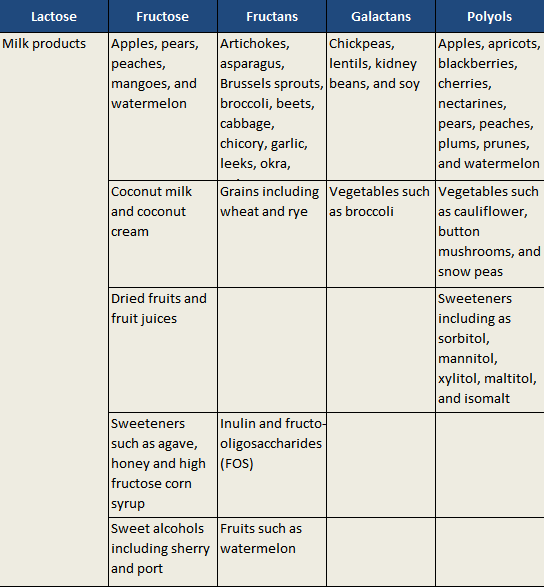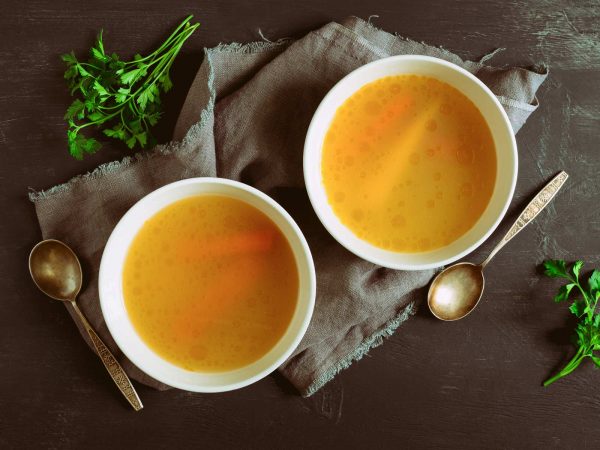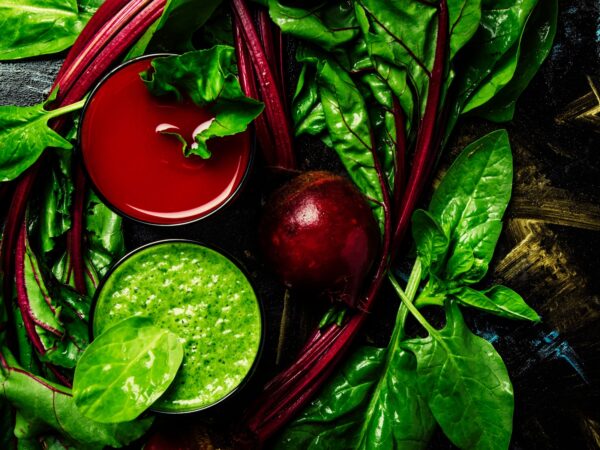Can a Low FODMAP Diet Ease Your Digestive Distress?
Onions, garlic, apples, asparagus, sweet potatoes, Brussels sprouts…
These colorful fruits and vegetables would appear to be the foundation of a healthy diet. But is it possible that they could also cause digestive distress and even disease for some people?
The answer may surprise you.
According to recent research, the foods listed above (among many others) may contribute to painful and embarrassing “functional gut disorders” including bloating, irritable bowel syndrome (IBS) and diarrhea. And the reason why is because of compounds called FODMAPs, an acronym for Fermentable, Oligo-, Di- and Mono-saccharides and Polyols.
What are FODMAPS?
This group of compounds is found in a wide variety of foods, ranging from berries to buttermilk. Each one can have a distinct effects on the digestive system.
Let’s take a look:
Fermentable:
Carbohydrates that are fermentable are those that rely on gut bacteria (rather than digestive enzymes) to break down. As these carbohydrates ferment in the digestive tract, they produce a food source for the bacteria that reside in our digestive system. For many people, fermentable carbs are a good thing. They can boost digestive health and increase the number of beneficial bacteria. But for some people, the results are gas and bloating and an overgrowth of harmful gut bacteria.
Oligosaccharides:
These short-chain carbs include fructans (chains of fructose with a glucose molecule) and galactans (chains of galactose with a fructose molecule). For many who suffer from digestive distress, these compounds are poorly absorbed. This can cause an overgrowth of bacteria in the small intestine (called small intestinal bacterial overgrowth or SIBO).
Disaccharides:
Two sugar molecules bound together, with the most common being lactose (milk sugar). Many people have low levels of lactase – the enzyme that breaks down lactose – causing malabsorption when lactose-containing foods are consumed.
Monosaccharides:
A single sugar molecule. Fructose (or fruit sugar) is the often most problematic monosaccharide and contributes to gas and bloating for those with FODMAPS issues.
Polyols:
Also called sugar alcohols, polyols occur naturally in a wide variety of foods – from mushrooms and snow peas to cherries and apples. Polyols are also found in low-calorie sweeteners including sorbitol, mannitol, maltitol, xylitol and isomalt. In excess, these substances can have a laxative affect as they are poorly absorbed in the intestine.
Can a Low FODMAP Diet Reduce Gut Issues?
For many people, reducing foods that contain FODMAPS can provide significant digestive relief or cessation of symptoms.
In fact, according to a study published in the Journal of Gastroenterology and Hepatology, reducing FODMAPS reduced symptoms in approximately 75% of patients with functional gut disorders.
But not all FODMAPS are created equal when it comes to their impact on your health.
For example, you may react poorly to fructose, but have no problems with fermentable carbohydrates.
Another important factor is the amount of FODMAPS consumed. Because these compounds are ubiquitous in the food supply it is almost impossible to avoid them entirely. But reducing the FODMAPS that you personally react to is the best way to reduce digestive distress from these compounds while still enjoying a diverse, nutrient-rich diet.
Take a look at the classes of FODMAPS and the foods in which they are found:

If you suffer from digestive issues, choosing an ancestral diet, rich in healthy fats and protein is a good first step. Grains, legumes and most dairy products can be problematic for the GI tract and for overall health, as well.
From there, a food journal can be beneficial in rooting out the offending FODMAPS. Pay close attention to how you feel after consuming FODMAP-rich foods to create your personalized healthy-gut diet.
Finally, eating a low FODMAP diet doesn’t have to be bland and boring. Here are a few quick and healthy meal ideas to get you started:
- Grass-Fed Beef and Bok Choy Stir-Fry With Red Bell Peppers
- Oven-Roasted Pastured Chicken with Organic Tomatoes and Wilted Spinach
- Almond Flour Paleo Pancakes with Blueberries and Sugar-Free Pork Bacon or Breakfast Sausage
- Grilled Heirloom Pork Chops with Sautéed Carrots and Butter Lettuce Salad
- Bison-Stuffed Bell Peppers




Leave a Reply